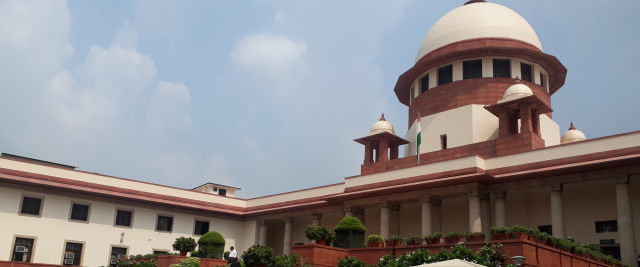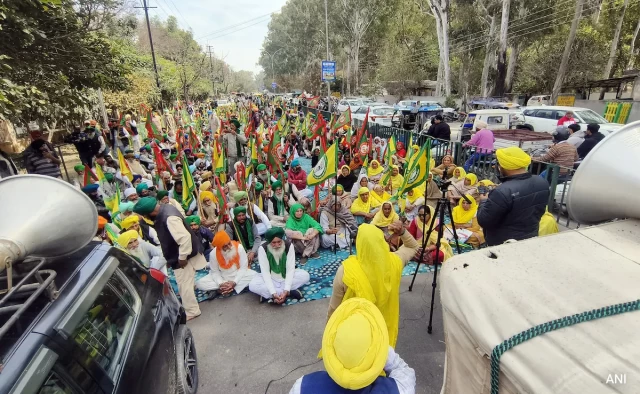Supreme Court's Landmark Decision on Electoral Bonds: A Five-Judge Bench to Weigh In
- Posted on October 16, 2023
- Legal
- By Arijit Dutta
- 460 Views
In a significant move, the Supreme Court has decided to refer the plea challenging electoral bonds to a five-judge bench, marking a pivotal moment in India's political landscape. Chief Justice DY Chandrachud, emphasizing the issue's paramount importance and invoking Article 145(4) of the Indian Constitution, directed that the matter be presented before a bench comprising at least five judges. The proceedings are scheduled to commence on October 30, 2023, according to a report by Bar and Bench.
 Image Source -www.scobserver.in
Image Source -www.scobserver.in
In a significant move, the Supreme Court has decided to
refer the plea challenging electoral bonds to a five-judge bench, marking a
pivotal moment in India's political landscape. Chief Justice DY Chandrachud,
emphasizing the issue's paramount importance and invoking Article 145(4) of the
Indian Constitution, directed that the matter be presented before a bench
comprising at least five judges. The proceedings are scheduled to commence on
October 30, 2023, according to a report by Bar and Bench.
This development comes as a response to the persistent calls for transparency and accountability in political funding, making it a vital topic within the legal and political arenas. The decision is poised to have a substantial impact on India's electoral system and has garnered widespread attention from legal experts and the public alike.
Also Read: US Expands Trade Controls To Safeguard Advanced Chip Technology
The primary focus of the upcoming hearings is the
challenge to the controversial electoral bond scheme, which has been a subject
of contention for quite some time. Earlier, the bench had taken note of the
submissions made by lawyer Prashant Bhushan, who argued that the matter
required adjudication before the electoral bond scheme opens for the 2024
general elections. As a result, the bench had decided to set it for a final
hearing, underlining the urgency and significance of resolving the matter.
The crux of the issue revolves around four Public
Interest Litigations (PILs) that have been pending, all of which center on
electoral bonds. These PILs have been filed in the pursuit of greater
transparency in political funding. One petitioner, back in March, revealed that
an astonishing sum of Rs 12,000 crore had already been channeled to political
parties through electoral bonds. What's particularly striking is that two-thirds
of this colossal amount have found their way to a single prominent political
party.
The electoral bond system was introduced with the promise
of providing an alternative to cash donations, a move designed to inject
transparency and accountability into the murky world of political funding.
However, it has continued to be a contentious subject, with various
stakeholders expressing concerns about potential misuse and a lack of
transparency.
This momentous decision by the Supreme Court not only
elevates the significance of the issue but also raises expectations for a
comprehensive and impartial resolution to the electoral bond challenge,
possibly reshaping India's political financing landscape.




